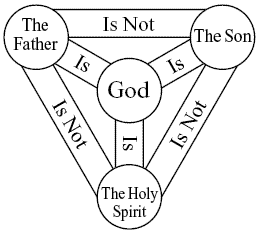Is there an unpardonable sin?
This is a good question and deserves careful attention.
Many people are concerned and even confused about what is commonly referred to as the “unpardonable sin” and what the Bible calls the “sin unto death.” We are going to see that the two are in fact, completely unrelated.
The term “unpardonable sin” is not found in the Bible. It is frequently used to describe the sin of blasphemy against the Holy Spirit. For example, “Wherefore I say unto you, All manner of sin and blasphemy shall be forgiven unto men: but the blasphemy against the Holy Ghost shall not be forgiven unto men. And whosoever speaketh a word against the Son of man, it shall be forgiven him: but whosoever speaketh against the Holy Ghost, it shall not be forgiven him, neither in this world, neither in the world to come” (Matthew 12:31-32).
“Verily I say unto you, All sins shall be forgiven unto the sons of men, and blasphemies wherewith soever they shall blaspheme: But he that shall blaspheme against the Holy Ghost hath never forgiveness, but is in danger of eternal damnation” (Mark 3:28-29).
“And whosoever shall speak a word against the Son of man, it shall be forgiven him: but unto him that blasphemeth against the Holy Ghost it shall not be forgiven” (Luke 12:10).
With statements like these it becomes clear that only unsaved people can commit the “unpardonable sin” of blaspheming the Holy Spirit. It is committed by those who have gone beyond the call of mercy where there remains no more sacrifice for sin. They rejected the Holy Spirit’s conviction and died having never repented – that is what is unpardonable. The man who has committed this sin is either in the grave or not at all concerned or even interested in his soul or eternity.
If you are reading this with any spiritual concern at all, you needn’t worry that you may have committed this sin. And don’t let the devil trick you into thinking you have! But don’t delay your decision to trust Christ either. The Bible says, “…behold, now is the accepted time; behold, now is the day of salvation” (2 Corinthians 6:2). Notice the words, “now.” We are not even guaranteed a ‘later today’ let alone a tomorrow.
The second term, “Sin unto death” is found twice in Scripture and alluded to in a third location. 1 John 5:16 says, “If any man see his brother sin…There is a sin unto death…and there is a sin not unto death.” It is obvious that John is talking to saved people here as he uses the term “brother.”
Consider 1 Cor 11:30, “For this cause many are weak and sickly among you, and many sleep.” The “sleep” referred to in this verse is death. It is God’s judgment on a saved man or woman who refuses to make things right with God or another Christian. This sin does not change the fact that a Christian is going to Heaven, it simply cuts their earthly life short and certainly involves a loss of reward. Only saved people can commit the sin unto death.










